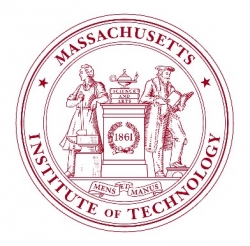Thursday, March 31. 2011
  Open access, readership, citations: a randomized controlled trial of scientific journal publishing doi:10.1096/fj.11-183988fj.11-183988
Philip M. Davis: "Published today in The FASEB Journal we report the findings of our randomized controlled trial of open access publishing on article downloads and citations. This study extends a prior study of 11 journals in physiology (Davis et al, BMJ, 2008) reported at 12 months to 36 journals covering the sciences, social sciences and humanities at 3yrs. Our initial results are generalizable across all subject disciplines: open access increases article downloads but has no effect on article citations... You may expect a routine cut-and-paste reply by S.H. shortly... I see the world as a more complicated and nuanced place than through the lens of advocacy." Sorry to disappoint! Nothing new to cut-and-paste or reply to:
Still no self-selected self-archiving control, hence no basis for the conclusions drawn (to the effect that the widely reported OA citation advantage is merely an artifact of a self-selection bias toward self-archiving the better, hence more citeable articles -- a bias that the randomization eliminates). The methodological flaw, still uncorrected, has been pointed out before.
If and when the requisite self-selected self-archiving control is ever tested, the outcome will either be (1) the usual significant OA citation advantage in the self-archiving control condition that most other published studies have reported -- in which case the absence of the citation advantage in Davis's randomized condition would indeed be evidence that the citation advantage had been a self-selection artifact that was then successfully eliminated by the randomization -- or (more likely, I should think) (2) there will be no significant citation advantage in the self-archiving control condition either, in which case the Davis study will prove to have been just a non-replication of the usual significant OA citation advantage (perhaps because of Davis's small sample size, the fields, or the fact that most of the non-OA articles become OA on the journal's website after a year).
Until the requisite self-selected self-archiving control is done, this is just the sound of one hand clapping.
Readers can be trusted to draw their own conclusions as to whether this study, tirelessly touted as the only methodologically sound one to date, is that -- or an exercise in advocacy.
Stevan Harnad
American Scientist Open Access Forum
EnablingOpenScholarship
Friday, March 25. 2011

Change in IEEE Author Policy:
Impact on MIT Faculty Open Access Policy
Posted March 23rd, 2011 by Ellen DuranceauIn January 2011, the IEEE changed a key author policy, discontinuing the right authors had to post the final published version of their IEEE articles on the web. This alters what authors can do with their work and how the MIT Faculty Open Access Policy can be implemented for these papers.
The policy change is not retrospective: papers posted before January do not need to be taken down from the web. But from January on, authors may post only their accepted manuscripts, not the final published version of their articles.
As a consequence of this policy change, the MIT Libraries can no longer copy the final published articles from IEEE’s database and post them in MIT’s research repository, Dspace@MIT, as we have been doing since the faculty passed their Open Access Policy.
Instead, the Libraries are now requesting that authors submit their final accepted manuscripts of IEEE papers for deposit under the Policy. Papers can be uploaded through a simple web form and will appear in the Open Access Articles Collection. • IEEE’s policy
• MIT Faculty Open Access Policy
• Ellen Duranceau, MIT Libraries Program Manager, Scholarly Publishing & Licensing, x38483.
The IEEE policy change is a good thing, a blessing in disguise.
Self archiving, by MIT authors, of MIT authors' final, refereed accepted drafts, is what the MIT policy and procedure should have been all along.
That's the procedure that will work, and the policy that can and will scale to all other universities, funders and publishers worldwide.
Mandated self-archiving of authors' final drafts is also what will usher in universal Green OA and eventually also publisher downsizing and transition to Gold OA, with journals reducing their services and costs to just overseeing peer review -- offloading all access-provision and archiving onto the worldwide network of mandated institutional repositories.
That will effectively turn the authors' self-archived refereed, revised, accepted final drafts into the canonical version of record.
If MIT had kept relying on importing the publisher's PDF, the MIT policy and procedure would not have been smoothly scaleable to the rest of the world's universities, funders and publishers, Green OA would be needlessly delayed and hamstrung, the current status quo and its modus operandi would have been locked in, and any eventual cost-cutting, downsizing to peer review alone, and transition to Gold OA would have been made far less likely. Harnad, S. (2011, in press) Gold Open Access Publishing Must Not Be Allowed to Retard the Progress of Green. Open Access Self-Archiving. Logos
Sale, A., Couture, M., Rodrigues, E., Carr, L. and Harnad, S. (2011, in press) Open Access Mandates and the "Fair Dealing" Button. In: Dynamic Fair Dealing: Creating Canadian Culture Online (Rosemary J. Coombe & Darren Wershler, Eds.)
Harnad, S. (2010) The Immediate Practical Implication of the Houghton Report: Provide Green Open Access Now. Prometheus 28 (1): 55-59.
Harnad, S. (2010) Open Access to Research: Changing Researcher Behavior Through University and Funder Mandates. In Parycek, P. & Prosser, A. (Eds.): EDEM2010: Proceedings of the 4th Inernational Conference on E-Democracy. Austrian Computer Society, 13-22
Harnad, S. (2010) No-Fault Peer Review Charges: The Price of Selectivity Need Not Be Access Denied or Delayed. D-Lib Magazine 16 (7/8).
Harnad, S. (2009) The PostGutenberg Open Access Journal. In: Cope, B. & Phillips, A (Eds.) The Future of the Academic Journal. Chandos. Stevan Harnad
American Scientist Open Access Forum
EnablingOpenScholarship
Monday, March 21. 2011
 Research intelligence - Empty buckets or pure gold? by Paul Jump in Times Higher Education 17 March 2011: "Open-access advocates ponder weak repository growth as publishers restate dire warnings."
Research intelligence - Empty buckets or pure gold? by Paul Jump in Times Higher Education 17 March 2011: "Open-access advocates ponder weak repository growth as publishers restate dire warnings."
Response:
(1) What is self-archived in institutional open access repositories is quality-controlled, peer-reviewed final drafts of journal articles, immediately upon acceptance for publication..
This (contrary to what Michael Mabe keeps implying, despite frequently being corrected on this very same point) is what is meant by "green open access."
(2) The reason green open access self-archiving of peer-reviewed journal articles is growing too slowly is very simple: It has to be mandated by researchers' institutions and funders.
It is the green open access mandates (of which there are now about 200 worldwide, see ROARMAP) that are still growing too slowly; and the reason for that is persistent misunderstandings on precisely these two matters (that what is self-archived is peer-reviewed articles and that they will only be self-archived when self-archiving is universally mandated) along with the third misunderstanding implicit in the above article:
  (3) Green open access self-archiving has to come before gold open access publishing. (3) Green open access self-archiving has to come before gold open access publishing.
Universal green open access mandates by institutions and funders will generate universal green open access. If and when that makes journal subscriptions unsustainable, then journals can and will convert to gold open access and institutions can and will use their annual windfall subscription cancelation savings to pay for their authors' gold open access publication fees.
But to talk about journal collapse now -- when subscriptions revenues are doing just fine, thank you, whereas open access is still lacking -- is utter nonsense. One can only wonder how long such nonsense will continue to be taken seriously by researchers' institutions and funders. For once this canard is laid to rest, perhaps they will get around to the optimal, inevitable and obvious solution: Mandate green open access self-archiving. The rest will take care of itself quite naturally of its own accord.
Harnad, S. (2011, in press) Gold Open Access Publishing Must Not Be Allowed to Retard the Progress of Green Open Access Self-Archiving. Logos.
Stevan Harnad
American Scientist Open Access Forum
EnablingOpenScholarship
 Anonymous query: "Sorry for my ignorance. But is it possible to speak about the golden road to open access and whether any institutions have taken up that road at all?" The golden road to Open Access (OA) is to publish in Gold OA journals (free for the user online).
The green road to OA is to publish in conventional (non-OA) journals and to make the articles OA (free for the user online) by self-archiving them in the author's institutional repository.
About 20% of journals (but not the top 20%) are Gold OA journals.
Institutions and funders can mandate (require) Green OA self-archiving, but they cannot mandate Gold OA publishing.
(They can neither require 80% publishers to be Gold OA nor can they require their researchers to publish in 20% Gold OA journals and not in 80% non-OA journals. There is also little or no extra institutional money to pay for Gold OA publication fees while the institutions' potential funds are still being spent on their annual journal subscriptions.)
Mandating Green OA can provide 100% OA (Green OA) with certainty.
Once it is universally mandated, 100% Green OA will probably (but not with certainty) lead to institutional subscription cancelations, making subscriptions no longer sustainable as the way of covering the remaining costs of publication. If/when that comes to pass, journals will convert to Gold OA, and the Gold OA publication fees will be paid out of the institutional windfall subscription cancelation savings.
See:
http://www.openscholarship.org/
http://roarmap.eprints.org/
Harnad, S. (2011, in press) Gold Open Access Publishing Must Not Be Allowed to Retard the Progress of Green. Open Access Self-Archiving. Logos
Sale, A., Couture, M., Rodrigues, E., Carr, L. and Harnad, S. (2011, in press) Open Access Mandates and the "Fair Dealing" Button. In: Dynamic Fair Dealing: Creating Canadian Culture Online (Rosemary J. Coombe & Darren Wershler, Eds.)
Harnad, S. (2010) The Immediate Practical Implication of the Houghton Report: Provide Green Open Access Now. Prometheus 28 (1): 55-59.
Harnad, S. (2010) Open Access to Research: Changing Researcher Behavior Through University and Funder Mandates. In Parycek, P. & Prosser, A. (Eds.): EDEM2010: Proceedings of the 4th Inernational Conference on E-Democracy. Austrian Computer Society, 13-22
Harnad, S. (2010) No-Fault Peer Review Charges: The Price of Selectivity Need Not Be Access Denied or Delayed. D-Lib Magazine 16 (7/8).
Harnad, S. (2009) The PostGutenberg Open Access Journal. In: Cope, B. & Phillips, A (Eds.) The Future of the Academic Journal. Chandos.
Harnad, S., Brody, T., Vallieres, F., Carr, L., Hitchcock, S., Gingras, Y, Oppenheim, C., Stamerjohanns, H., & Hilf, E. (2004) The green and the gold roads to Open Access. Nature Web Focus.
Monday, March 14. 2011
 Poynder, Richard (2011) PLoS ONE, Open Access, and the Future of Scholarly Publishing. Open and Shut. 7 March 2011. ABSTRACT: Open Access (OA) advocates argue that PLoS ONE is now the largest scholarly journal in the world. Its parent organisation — Public Library of Science (PLoS) — was co-founded in 2001 by Nobel Laureate Harold Varmus. What does the history of PLoS tell us about the development of PLoS ONE? What does the success of PLoS ONE tell us about OA? And what does the current rush by other publishers to clone PLoS ONE tell us about the future of scholarly communication?
Comment:
Richard Poynder has written another timely and important eye-opener about Open Access. Although (as usual!) I disagree with some of the points Richard makes in his paper, I think it is again a welcome cautionary piece from this astute observer and chronicler of OA developments across the years.
(1) Richard is probably right that PLOS ONE is over-charging and under-reviewing (and over-hyping).
(2) It is not at all clear, however, that the solution is to deposit everything instead as unrefereed preprints in an IR and then wait for the better stuff to be picked up by an " overlay journal". (I actually think that's utter nonsense.)
(3) The frequently mooted notion (of Richard Smith and many others) of postpublication "peer review" is not much better, but it is like a kind of " evolutionarily unstable strategy" that could be dipped into experimentally to test what scholarly quality, sustainability, and scaleability it would yield -- until (as I would predict) the consequences become evident enough to induce everyone to draw back.
(4) Although there is no doubt that Harold Varmus's stature and advocacy have had an enormous positive influence on the growth of OA, in my opinion Richard is attributing far too much prescience to Harold's original 1999 E-biomed proposal. [See my 1999 criticisms. Although I was still foolishly flirting with central deposit at the time (and had not yet realized that mandates would be required to get authors to deposit at all), I think I picked out the points that eventually led to incoherence; and, no, PLOS was not on the horizon at that time (even BMC didn't exist).]
(5) Also, of course, I think Richard gives the Scholarly Scullery way too much weight (though Richard does rightly state that he has no illusions about those chefs' motivation -- just as he stresses that he has no doubts about PLOS's sincerity).
(6) Richard's article may do a little short-term harm to OA, but not a lot. It is more likely to do some good.
(7) I wish, of course, that Richard had mentioned the alternative that I think is the optimal one (and that I think will still prevail), namely, that self-archiving the refereed final draft of all journal articles (green OA) will be mandated by all universities and funders, eventually causing subscription cancellations, driving down costs to just those of peer review, and forcing journals to convert to institutional payment for individual outgoing paper publication instead of for incoming bulk subscription. The protection against the temptation to "dumb down" peer review to make more money is also simple and obvious: no-fault refereeing charges.
(8) Richard replied that the reason he did not dwell on Green OA, which he too favors, is that he thinks Green OA progress is still too slow (I agree!) and that it's important to point out that the fault in the system is at the publisher end -- whether non-OA publisher or OA. I continue to think the fault is at the researcher end, and will be remedied by Green OA self-archiving by researchers, and Green OA self-archiving mandates by research institutions and funders Harnad, S. (2010) No-Fault Peer Review Charges: The Price of Selectivity Need Not Be Access Denied or Delayed. D-Lib Magazine 16 (7/8).
Harnad, S. (2009) The PostGutenberg Open Access Journal. In: Cope, B. & Phillips, A (Eds.) The Future of the Academic Journal. Chandos.
Stevan Harnad
American Scientist Open Access Forum
EnablingOpenScholarship
Sunday, March 13. 2011
 
Emily Chung, in CBC News, writes: "No more free access to Canadian science journals: Privatization of NRC Research Press means public, scientists now pay $10 per article" The solution to this non-problem is simple: If the authors of the articles that are published in the 17 NRC journals want to maximize the uptake, usage and impact of their findings (and all researchers do!), all they have to do is self-archive the final, refereed draft in their research institution's open-access repository immediately upon acceptance for publication.
And if their research institution and research funder want to make sure that is done, all they have to do is mandate self-archiving, as many institutions and funders worldwide are beginning to do -- **including the NRC** (and 12 other institutions and funders in Canada).
See the Registry of Open Access Material Access Policies (ROARMAP):
Canadian Breast Cancer Research Alliance (CBCRA)
Canadian Cancer Society (CCS)
Canadian Health Services Research Foundation (CHSRF)
Canadian Institutes of Health Research (CIHR)
Concordia University
Fonds de la recherche en sante Quebec (FRSQ)
Heart and Stroke Foundation of Canada
Michael Smith Foundation for Health Research (MSFHR)
**National Research Council (NRC) Canada**
Ontario Institute for Cancer Research (OICR)
Queen's University Library Faculty
University of Calgary: Library and Cultural Resources
University of Guelph Faculty of Environmental Sciences
Thursday, March 10. 2011
  ROARMAP ROARMAP
The ROARMAP Registry of Green Open Access Mandates has been upgraded: http://roarmap.eprints.org/
With University of North Texas's mandate (approved by UNT Faculty Senate March 9 2011) there are now 193 Green OA Mandates by institutions and funders worldwide (plus 75 thesis mandates).
This would be an opportune time for you to register your mandate, if it is not registered already.

|








 (3) Green open access self-archiving has to come before gold open access publishing.
(3) Green open access self-archiving has to come before gold open access publishing. 





